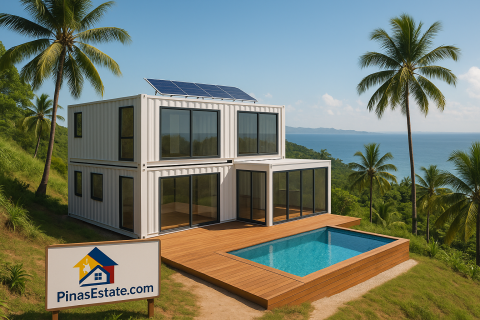Buying a House in the Philippines as a Foreigner: Legal, Safe & Traditionally Sound Investment
Buying Property in the Philippines as a Foreigner
Introduction
The Philippines attracts many Europeans as a destination for retirement, tourism, or business. However, foreigners must understand the country’s property laws before investing. Land ownership is generally not allowed for foreigners—but there are well-established legal ways to secure a home or property use.
1. Basic Rule: No Land Ownership for Foreigners
The Philippine Constitution prohibits foreigners from owning land. However, foreigners may:
Own a house or building,
Lease land long-term,
Own a condominium,
Form a corporation with Filipino majority ownership.
2. Own the House, Not the Land
You may own the structure you build or purchase—but not the land it sits on.
Typical solution: lease the land for 25 years, renewable for another 25 years (up to 50 years total).
This model is ideal for modular buildings, container homes, or vacation rentals.
3. Ownership via Marriage
A Filipino spouse can legally own land. However:
The title is under the Filipino spouse’s name only,
The foreigner has no legal claim,
Upon death, inheritance rights may not pass to the foreign spouse automatically.
Note: Using a local citizen as a “dummy owner” is illegal and can lead to forfeiture.
4. Condominium Ownership
Foreigners can legally buy condos, provided:
The building is part of a registered condominium corporation,
Foreign ownership does not exceed 40% of total units.
This is a clean and legal route, especially in urban or resort areas.
5. Long-Term Land Leases
A popular legal model:
Lease land from a Filipino owner,
Build a house you fully own,
Lease term: up to 50 years,
Often used for tourism projects, modular homes, or commercial ventures.
The lease agreement should be notarized and registered with the Land Registry.
6. Corporation Model
Foreigners may own up to 40% of a Philippine corporation.
Such a company may buy land, but:
60% of shares must belong to Filipinos,
It's commonly used for industrial or large tourism ventures.
Legal setup must be done with a qualified local attorney.
7. Recommendations
Conduct a Title Check (Land Registry / Registry of Deeds),
Avoid straw-man schemes,
Use a reputable attorney,
Consider traditional long-term lease models for maximum legal clarity,
Plan structural durability and handover options if the lease ends.
Conclusion
Buying a house in the Philippines is possible for foreigners—when done properly.
It requires patience, local legal knowledge, and a traditional, respectful approach.
Whether you aim for a peaceful retreat, a business investment, or vacation rentals: legal certainty is key.


Comments
There are no comments yet